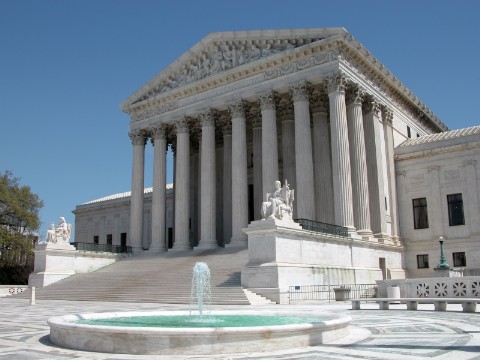
On Friday night, the U.S. Supreme Court rejected Texas’s lawsuit challenging the results of the presidential election in Georgia, Michigan, Wisconsin, and Pennsylvania.
Texas filed its lawsuit directly in the Supreme Court rather than in a lower court, first relying on a constitutional provision giving the Supreme Court “original jurisdiction” over controversies between the states. Most Supreme Court Justices don’t take the position that they have to hear all cases where the Court has original jurisdiction.
Texas argued that government officials in the above four states “presented the pandemic as the justification for ignoring state laws regarding absentee and mail-in voting.” According to Texas, these states violated the U.S. Constitution by allowing “nonlegislative entities” to change voting rules “inconsistent with relevant state laws” “without any consent by the state legislatures.”
Texas claimed the U.S. Supreme Court had to hear its case because “it is the only court that can hear this action quickly enough to render relief sufficient to avoid constitutionally tainted votes in the Electoral College,” which is voting today.
All four states Texas sued asked the Supreme Court to not hear this case for multiple reasons including that Texas lacked standing to argue that they hadn’t followed their own laws. As Michigan argued: “It is difficult to conceive of a greater intrusion upon Michigan’s sovereignty than to have another state hale it before this Court to answer whether Michigan has followed its own laws in its own elections where its own courts have found no violation.”
The U.S. Supreme Court issued a brief unsigned statement declining to allow Texas’s lawsuit to proceed without commenting on the merits of the case. It noting that Texas lacked standing to bring this case because it “has not demonstrated a judicially cognizable interest in the manner in which another state conducts its elections.”
Justices Alito and Thomas issued a brief statement indicating they believed the Court lacks the discretion “to deny the filing of a bill of complaint in a case that falls within our original jurisdiction.” Nevertheless, they stated that while they would allow the lawsuit to continue, they “would not grant other relief,” and they “express[ed] no view on any other issue.” Recently both of these Justices have opined that the Supreme Court must hear cases “within our original jurisdiction that arise between two or more states.”
New, Reduced Membership Dues
A new, reduced dues rate is available for CAOs/ACAOs, along with additional discounts for those in smaller communities, has been implemented. Learn more and be sure to join or renew today!
